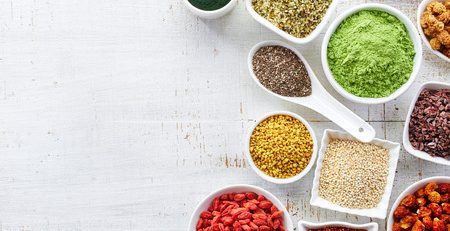Some Fats to Not be Cut Out of Your Diet – Omegas!
 Omega Fatty Acids, or EFAs, are considered ‘good fats’ and are an essential part of a healthy diet. Whilst most people tend to think that all fats are unhealthy, Omega Fatty Acids have a variety of health benefits including helping the body process cholesterol and degenerating arteries of cholesterol, assisting the adrenal and thyroid glands, and regulating blood pressure therefore becoming quite essential!
Omega Fatty Acids, or EFAs, are considered ‘good fats’ and are an essential part of a healthy diet. Whilst most people tend to think that all fats are unhealthy, Omega Fatty Acids have a variety of health benefits including helping the body process cholesterol and degenerating arteries of cholesterol, assisting the adrenal and thyroid glands, and regulating blood pressure therefore becoming quite essential!
There are different varieties of Omega Fatty Acid, most notably Omega-3, Omega-6 and Omega-9 (carbon chains of 3). The final variety may be naturally produced by the body, however the first two Omega Fatty Acids cannot and therefore must be consumed either through Omega Fatty acid rich foods or via food supplements.
Omega-3, also known as Linolenic Acid or ALA, is perhaps the most well known of the EFAs and both Fish oil and flax seed are sources. Oily fish such as herring, salmon, sardines and anchovies contain high levels of Omega-3, with tuna also being a source but containing relatively lower quantities. Although fish is a source of Omega-3 Fatty Acids, they obtain them from algae in their diet, rather than producing the EFA themselves, and this later passes on to us via movements in the food chain.
Flax seed, also known as Linseed, is also a source of Omega-3 and is the other main source of Omega-3. Butternuts and Walnuts are also sources of Omega-3, but the percentage quantity of the EFA is far lower in these.
Regular consumption of Omega-3 is necessary for a healthy diet, and which source is most beneficial to your health is a question that deserves some coverage. Fish oil may be considered superior because it is an animal product, and because it is a direct source of EPA and DHA.
Flax seed may be a superior source of Omega-3 due to the fact that with oily fish there are health risks posed by the potential presence of heavy metals and fat-soluble pollutants such as dioxin. However, it should be remembered that many manufacturers have processes in place to both monitor and remove these contaminants. Flax seed is also considered by some to be superior because it is fiber rich, and also not a direct fat. Flax seed, or linseed, contains high levels of ALA which is one of the two Omega Fatty Acids the body needs, and the body can create all other Omega Fatty Acids that are needed once it has this ALA source. However, in doing so, relatively more flax seed must be consumed.
Another issue that people concerned with having a good source of EFAs in their diet may ask is whether they should obtain the Omega-3 source directly from the food or via food supplements. Although food supplements do offer the benefit that there is a regulated amount of the Fatty Acid, and therefore you can be ensured of how much of your RDA you are having, there have in recent years been many health scares related to food supplements and in particular with Omega-3 fatty acids. As an example, in 2006 the FSA in the UK was forced to temporarily withdraw a brand of Omega Fatty Acids supplement because of high levels of the toxic contaminant PCB. Although cost can be a contributory factor, it is almost always more beneficial to get your Omega Fatty Acids directly from the food source, not only because it is a more pleasant way or because there are less health risks but because in doing so you receive the other beneficial nutrients.
No suprise on my advise here. I believe you should know you are short on something before you start supplementing, making food choices superior. Omegas happen to be something needed weekly. If you eath fish 1-2 times a week (friday night sushi?) you probably get enough of your Omegas. Flax seed is a favorite of mine. I add to everything as it tastes good and adds fiber to your meals! Feel free to get more info on this, there are vast amounts of theories about ailments that come and go from lack of Omegas including fatigue!



